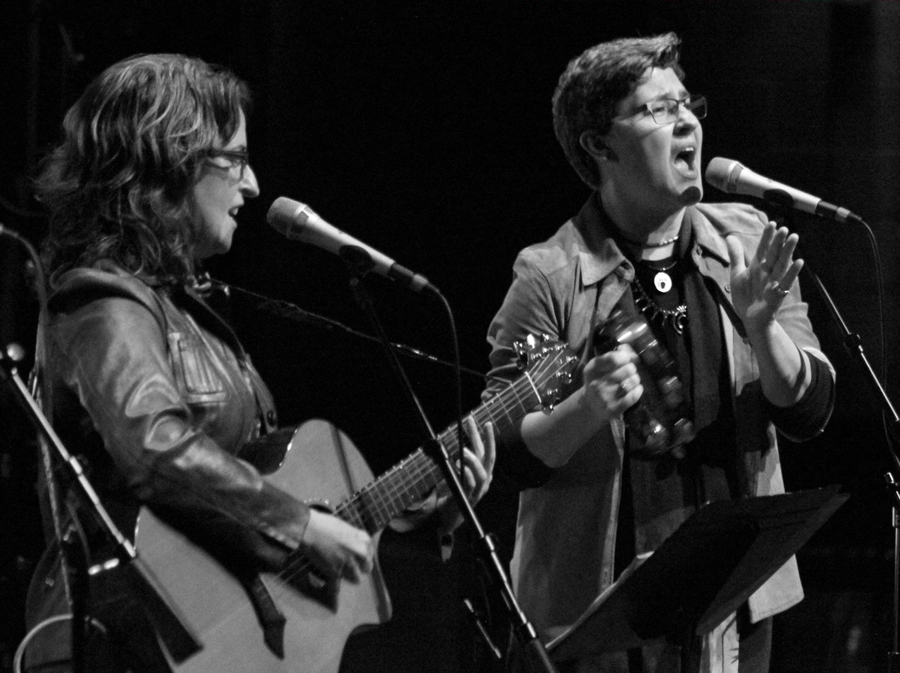A Space Where There Is No Other
February 1, 2023“Where do we find that space of connecting, of belonging. Really, that space where there is no other.” — bell hooks
Connection is a lifeline. To extend oneself, to belong to something larger. Inviting a conversation outside of one’s head or examining an internal relationship, perhaps to bring it into a state of balance.
That internal state of balance is one of the underlying losses during the pandemic that is rising to the surface for some of us as we emerge—in whatever ways we do, don’t or can’t emerge—from these last three years. There’s a yearning for a long-promised return to “normal” even when we know there is no normal and that what society has called “normal” was problematic, full of injustices and oppressive systems that continue to hurt so many of us.
Living through a time when our lives depended on our distance from one another and when breathing in the same space together could be deadly, some of us were able to question, “How can I possibly find safety and still have a sense of connection?” And some of us didn’t have the ability or choice to be safely distanced. At no time in recent history have we been so in need of connection and so uncertain about the means or the consequences of such contact.
Now, many of us are having to relearn how to connect and who to connect with. Even before we reach out to other people, we may have to go through a process of considering how connected or disconnected we are with ourselves. We’re, at once, catching up with and reinventing our lives and the process can be overwhelming. Even in writing this, we are feeling the challenges of reintegrating into some kind of new rhythm. We are bridging our own gap between what was and what is now, who we were and who we are becoming to meet this new reality. And we’ve needed a lot of patience and compassion, trust and love, both for ourselves and for each other, so that we can help create whatever happens next, personally and societally.
We’ve weathered our own losses and made dramatic changes to what we do in the world. And, like a snake shedding its skin, this new layer is still tender as we grow into it.
As songwriters, we connect best to ourselves and to the world through our music. What keeps us most rooted to the larger community is that we’re activist songwriters. Our job is to listen closely to people’s stories, especially stories that are silenced or obscured by dominant culture, and amplify those stories through songs that invite you to close your eyes and sink into a steady rhythm, shed a tear for a story of someone you’ve never even met, shout down an injustice or celebrate in joyful harmony.
Music creates a web of connection. It suspends a moment in time for us to get a closer look at what’s really going on, what we feel in our hearts and in our bodies: the loss, the pain, the power of what’s possible when we join together to create change. The song can reveal for us how we’re all connected in a moment in time. What things in our lives have we done that led to that moment. And what things have we not done that led us here. What needs have we paid attention to and what needs have we not.
In March of 2020, we started leading a weekly songwriting class that is still ongoing. We began the class so that we would have some source of income when all our gigs disappeared but we have found that it went much further than that, keeping us connected to our own writing as we pass on what we’ve learned over our decades of writing songs and giving our students an opportunity to hone and strengthen their skills, an expanding exploration into themselves—what they care about, what they love, what makes them laugh, what brings them comfort. We also started a weekly Sunday online gathering that included teaching our songs, inviting guest artists to teach theirs and joining together for monthly concerts. (The videos are archived on our YouTube channel and our Facebook page.) These gatherings lasted until the end of 2022 and were a touchstone for people—including some who were isolated because of health concerns, disability or geography—a place they could come every week, make friends and be in community. It was a touchstone for us, too, because it provided us with a routine for doing music and being part of and caring for a community. While we miss those gatherings, the demands of planning for and performing in person again require more of our time.
Writing, singing, performing with and to an audience has all shifted in these times but the power of music and song to connect us remains strong. Music super charges connection. The message goes deeper when it’s carried in a tender or powerful melody. It spreads farther as we carry these songs, sometimes through many years of our lives. As the CLF community knows well, people can still sing together, with the music physically vibrating in them and from them, helping to create a moment of sanctuary, even if our surroundings are not a sanctuary or a moment of collective power and unity, even when we are singing from our own separate spaces. May we each find that place of connection, of belonging. That space where there is no other.
Tags: friendship, quest-magazine-2023-02Quest Monthly Print Edition
Recent Issues
Latest Spiritual Reflection Posts
Weekly Newsletter
About
Quest for Meaning is a program of the Church of the Larger Fellowship (CLF).
As a Unitarian Universalist congregation with no geographical boundary, the CLF creates global spiritual community, rooted in profound love, which cultivates wonder, imagination, and the courage to act.
Contact
Church of the Larger Fellowship Unitarian Universalist (CLFUU)
24 Farnsworth Street
Boston MA 02210


